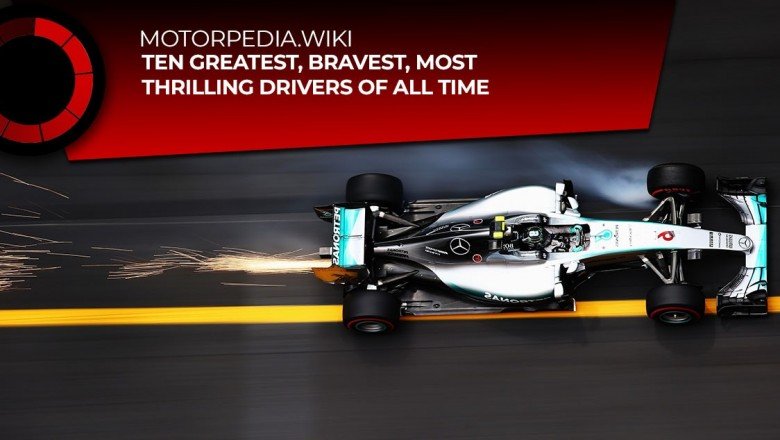
The 10 Greatest, Bravest And Most Thrilling Motorsport Drivers, Of All Time.
Pitting categories against each other is often akin to comparing apples to oranges. This makes compiling an objective top 10 greatest car racing drivers list difficult, so in a nutshell, a ranking of the best car drivers of all time that’d be universally accepted is a pipe dream. Now, if it were for a specific discipline or period (say a decade), there’d be more agreement.
And depending on what side of the Atlantic you’re on, it is likely that your greatest of all time list will either comprise almost entirely of F1 drivers, or have near equal representation of NASCAR drivers, as F1 is popular in Europe and In North America, stock car racing, NASCAR, is overwhelmingly popular (although that has been dipping over the last few years).
Furthermore, for an all-encompassing car racing greats list, there isn’t much of a gulf in difference between the first 15-20 drivers by any metric. Consequently, quite a few drivers who miss out of a typical best 10 auto racing drivers actually deserve a spot.
In light of these, we’ve tried to make the list more representative of the diverse racing genres. We’ve also arranged the names in no particular order, as such this isn’t a ranking. With that said, let’s get down to discussing the greats and their awe-inspiring careers and accomplishments.
Alain Prost "The Proffessor".

Alain Prost started out with kart racing at age 14, winning several karting competitions, and eventually progressed to become the only French driver to win a F1 World Championship (a record that still stands). In 1974 at age 19, Prost quit his schooingl to pursue a career as full-time racer. Only a year later, he won the 1975 French senior karting championship.
His win in the karting championship meant he was promoted to a spot in Formula Renault: He won the 1976 and 1977 Formula Renault championships. Then he moved up to Formula Three and won both the French and European F3 championships in 1979.
Around this point, it had become clear Prost was the next big thing in Formula racing and live up to his potential he did. However, his achievements on the course were mired by his feud with another all-time great, which was perhaps the bitterest and highest-profile rivalry in F1 history, Ayrton Senna, as well as serial controversies with his teams. Despite this, his success earned him the nickname "The Professor" (derogatory at the time) due to his his calculating, intellectual, and methodical style of racing.
Alain won FOUR F1 drivers’ championships (the third highest tally in F1 history; two of them back-to-back (1985 and 1986) which equaled Jack Brabham’s 26-year-long record. He could easily have had two more world titles.
Alain would later say, “Without going to what I think is my limit. I always say that my ideal is to get pole with the minimum effort, and to win the race at the slowest speed possible.” To many racing fans his may not have been the most spectacular approach, but he is living proof it was effective.
Ayrton Senna.

"Born to drive" was Ayrton Senna de Silva, an awkward child growing up, and later diagnosis showed he had a motor-coordination problem. Perhaps a problem in day-to-day living, but when he got behind the wheel at the age of four, his genius was revealed, and the awkwardness forgotten.
Senna would later go on to consistently push his car and self beyond the limits of their capability and human endeavor never before seen, and perhaps we never will. His ruthless and fierce driving style intimidated drivers, and their teams, fans, and even himself; but his 6 out of 8 Monaco Prix wins stand testamant to his legend. When he went, he went hard, no matter the weather or his opponents.
And yet it wasn’t just his spectacular raw talent, other-worldly commitment, and iron will that won him worldwide adulation; he also had the charisma, eloquence, and self-awareness that was impossible to dismiss. Sprinkle a pinch of spirituality with which millions felt they could identify with, and Ayrton Senna reached demi-god status in his home country of Brazil.
He amassed a record 65 pole positions, 41 wins, and won 3 championships. Considering this was at a time when he raced against all-time great Alain Prost (his firece rival) as well as exceptional drivers—Piquet and Mansell; and it is obvious why he is the driver most often regarded as the greatest race car driver of all time.
Dale Earnhardt.

Earnhardt’s place on this list could arguably be taken by either Richard “The King” Petty (going by the stats, the most successful racer ever in motorsport) or Jimmie “Superman” Johnson (the man who can’t help but shatter records for the sake of it).
Petty and Jimmie certainly dominated their eras, but Dale Earnhardt didn’t just dominate his era, he owned it. He became synonymous with (a synonym of) NASCAR. As a no-holds-barred driver, his aggressive style scared competing drivers but elicited feverish excitement amongst NASCAR fans. What he did on the racetrack; the fearlessness; the determination: it’s difficult to describe in words.
Unfortunately, like Senna, Earnhardt died on the tracks. However, his ferocious driving paid dividends as he equaled Petty’s 7 NASCAR Sprint Cup Championships record as well as win the Indianapolis 500 in his 20th attempt after several close calls.
Jim Clark "The Flying Scot"
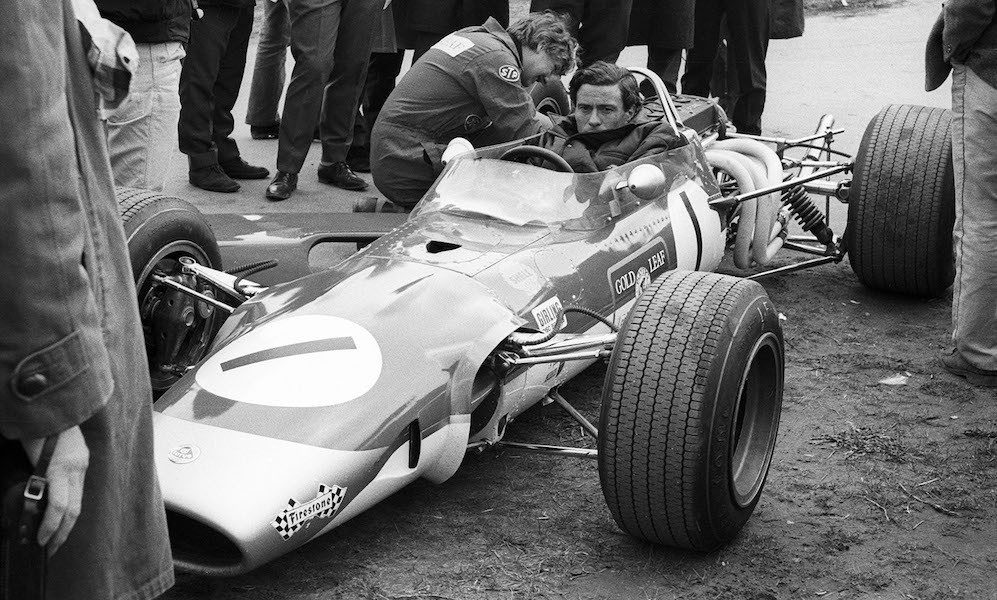
How do you win only two F1 championships (compared to Schumacher’s 7) and still ga]race the top of Time’s 2009 F1 greatest drivers list? Because Clark wasn’t a specialist F1 driver like Senna, Fangio, Prost, or Schumacher; he could and would race any car in any motorsport, in any weather with any setup.
Jim Clark pushed each car he drove to the brink without appearing to be trying too hard, and his talent was unquestionable. Clark is better known for his Formula One achievements, such as his two F1 championships which could easily have been more if his cars were more reliable, most grand slams by any F1 driver, and amongst the best percentage wins in F1 history.
However, he always made his presence known in any discipline he dabbled in. He made America go “What Just Happened?!” when he won the 1965 Indianapolis 500 after leading for 190 of the 200 laps, to become the only driver to win a F1 title and the Indianapolis 500 in the same year. He participated in the 24 Hours of Le Mans thrice and was in the top 3 twice.
In addition to open-wheel and sports car racing, he also competed in rallying, touring car, and stock car racing.
Juan Manuel Fangio "El Maestro"

Tthe gold standard, the OG racing all-time great (GOAT), a figure that cast shadow on every F1 driver that drove after him. "The Master" needed only 7 years to win his FIVE (5) F1 championships, only eclipsed by Michael Schumacher who needed 14 years to win SEVEN (7).
Fangio was in the top 2 of every F1 World Championship he participated in, except his last (where he took part in only two of the first five grands prix). Even more impressive is that he made his F1 exploits in his 40s. He is the only driver to win F1 titles with four different teams. And still holds the record for the most percentage wins and percentage pole positions.
El Maestro cemented his legacy with a grand performance at Nürburgring. It is widely regarded as the greatest drive in Formula One history. After surpassing Fangio’s championship record in 2003, Schumacher had this to say, “Fangio is on a level much higher than I see myself. What he did stands alone and what we have achieved is also unique.”
Michael Schumacher "The Red Baron"

A young Schumacher-older Senna matchup reminiscent of the young Senna-older Prost rivalry did not play out for as long as any of us would have liked (Imola happened); but when the Red Baron did come into his own in his era, he gave goosebumps.
Not only did he dominate his era, he rewrote the history of Formula One and launched himself into the pantheons of the greatest to ever drive a car. He broke a record number of F1 records taking full advantage of the improved safety of F1 and longevity.
Schumacher also played a pivotal role in taking Ferrari back to its old lofty heights and beyond to make it the most successful team in Formula One history. Between 2000-2004, the Schumacher-Ferrari tsunami blew the competition out of the water, winning an unprecedented five consecutive F1 championships, becoming the only driver to finish in the top 3 in every race of a season in F1 history, and making over two dozen records in total.
Although Schumacher courted controversy owing to his brashness, the official Formula One site is right on the money when it equivocally refers to him as “statistically the greatest driver the sport (F1) has ever seen.
Sebastien Loeb "Le Patron"

Loeb started out as a gymnast, and by age 15 had won five gold medals at the French national gymnastics championship. He made the switch from gymnastics to racing soon after that and in 1995, he started his career in rallying.
He was a natural, winning several titles before moving on to the elite World Rally Championships in 2002. Just one year later, he marginally lost the title by a single point. He used this loss as fuel for the fire and returned with a vengeance in 2003. For nine consecutive years, he won every WRC he participated in, smashing and creating new records in the process.
Although a tarmac specialist, Loeb would dominate every rally platform, whether it be gravel, tarmac, sand, snow or mixed, unlike any other driver. Nicknamed ‘The Boss’ for his calm, focused racing style, he became the gold standard against which every rally racer is measured.
Always looking for a new challenge, Loeb also raced rallycross, touring, and sports car events. He won the 2003, 2005, and 2008 Race of Champions (Champion of Champions title), came second in the 2006 24 Hours of Le Mans, and third in the 2014 and 2015 World Touring Car Championships.
Unarguably the greatest rally racer of all time (although fellow French driver Sebastien Ogier seems to be intent on making a challenge for the title), Loeb has cemented a place on any objective top 10 all-time racing greats list.
Mario Andretti

Andretti was perhaps the most successfully versatile racer in the history of motorsport, Mario wasn’t born into racing royalty ( although later on he and brother Aldo started the Andretti dynasty). In fact, his father disapproved of his racing antics. In addition, Andretti was born in Italy and exposed to a fundamentally different racing culture in Europe before his family moved to America.
He adapted to American racing fantastically and the diversity of it appealed to him. He would eventually go on to participate in midget, sprint, sports, stock, open-wheel and dirt racing events; amassing an enviable trophy haul over a four-decades-long career.
Andretti has the unique honour of being the only person to win the Formula One World Championship, Indianapolis 500, and Daytona 500. He also won the 1969 Pikes Peak International Hill Climb (favorite competition of the Unser clan). Quite the resume.
Fernando Alonso Or Lewis Hamilton?

This one, we couldn't decide, so we'll leave you with the facts, and let you make up your own mind as to who is the greatest F1 driver of the modern era.
In certain things Hamilton is consistently more succesful (mainly qualifying), whereas Alonso seems to be better at extracting every last ounce of performance from his car, and pushing it to it's limits. We have seen this many times:
- In 2012, Alonso's Ferrari F2012 was in no way a title winning car, but he still nearly won it.
- 2010, the Ferrari F10 was not as quick as Mclaren's MP4–25 or Red Bull's RB6, but still, he nearly won the title and perhaps would have, if not for Ferrari's questionable strategy.
- 2016, the Mclaren MP4–31 was by no means the 6th fastest car on the grid, but with Alonso at the wheel, that's where it finished in standings. Purportedly, Mclaren was not even setting the car in practice sessions, instead focusing on aero testing for the 2017 season. Still, Alonso finished in the top 10, and beat Jenson Button comprehensively. (Fun fact: Before Nico Rosberg, Jenson Button was the only teammate to beat Lewis Hamilton.)
Now coming to Hamilton, No doubt he is quick and he is much better than many on the grid, and better than Rosberg ever was. But questions are asked as Hamilton never had a bad car, except in 2009. His performance was by no means bad with the weaker car, h even won races, but he has only once had a car that was not considered a genuine front runner, and this raises questions as to his performance when not behind the wheel of a faster car than his opposition.
Now, who is the better driver? In our opinion, there is nothing to seperate them, and so we leave the decision up to you. Proof of their inseperable rivalry is the 2007 F1 season. Both finished equal on points and the no. of wins, yet Hamilton was classified above Alonso. This was becasue he had more 2nd place finishes than Alonso. But you can much see how equal they are when put on equal terms, behind the wheel of equal cars.
So what do you think, who is the superior driver? Let us know! We will hold a poll in the near future to determine who takes the final place on this list!






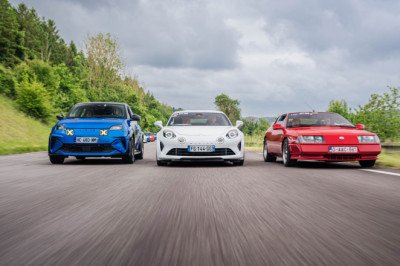

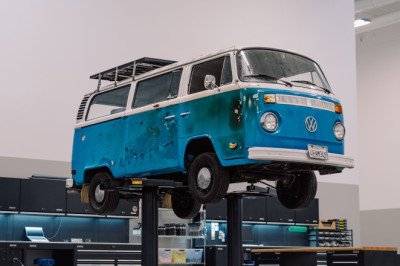
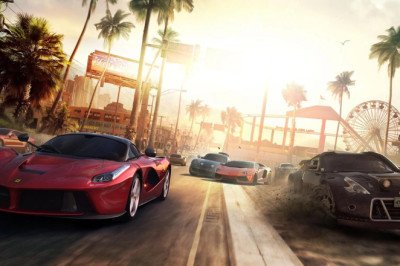
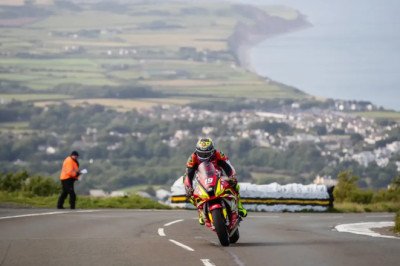
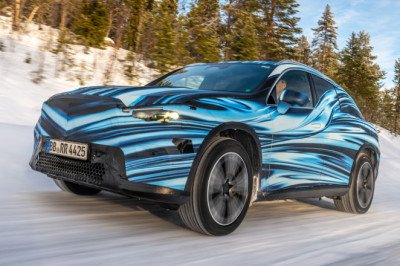


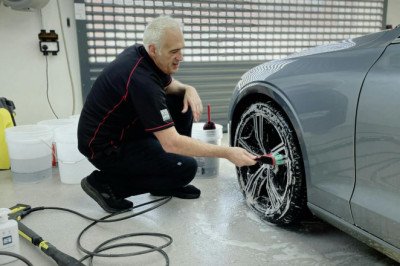
Facebook Conversations